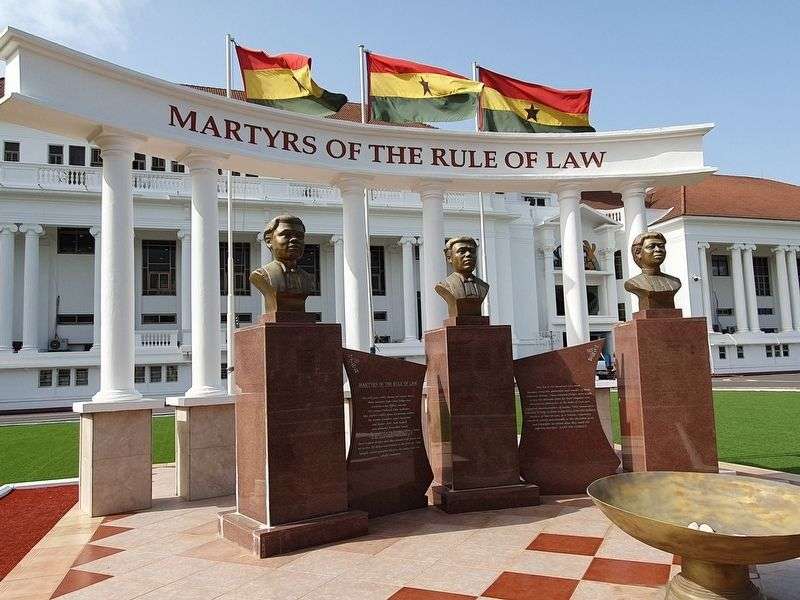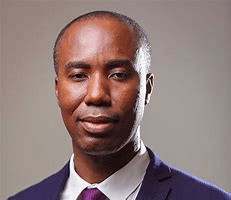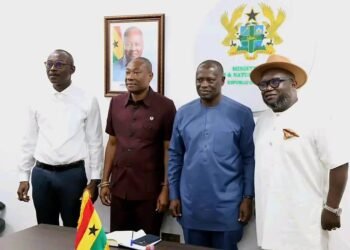Prof. Stephen Kwaku Asare, a prominent legal scholar and Democracy and Development Fellow at CDD-Ghana, has strongly criticized a high-profile discovery request filed in the ongoing financial crimes trial of former National Signals Bureau Director, Kwabena Adu-Boahene.
Speaking candidly about the legal maneuver, Prof. Asare asserted that the defense’s bid to access over thirty years of national security financial records is legally unsound, strategically distracting, and dangerously overreaching.
At the center of the controversy is an application by Adu-Boahene to Ghana’s High Court, requesting the release of all operational financial records held by the National Security Coordinator dating back to 1992.
The defense argued that the documents are necessary to ensure a fair trial, citing the constitutional right of the accused to access information critical to their defense. But Prof. Asare is not convinced.
While he acknowledged that discovery plays a crucial role in promoting fairness in judicial proceedings, Prof. Asare stressed that it must be used responsibly.
“Discovery must be specific, relevant, and necessary to the defense. It is not a license to conduct sprawling investigations into matters beyond the scope of the charges.”
Prof. Stephen Kwaku Asare
In this case, Prof. Asare warned that the request far exceeds the limits of what the law permits.
According to him, courts routinely place boundaries on discovery to prevent abuse, especially when the requests are overly broad, irrelevant, or speculative.
“Mr. Adu-Boahene’s request for nearly three decades of National Security operational accounts, spanning seven administrations, is problematic on several legal and evidentiary grounds.”
Prof. Stephen Kwaku Asare

He pointed out that the charges against Adu-Boahene are highly specific.
The accused is facing trial for stealing, conspiracy to steal, defrauding by false pretenses, willfully causing financial loss to the state, using public office for personal gain, and money laundering.
None of these charges, Prof. Asare emphasized, relates to institutional patterns or historic financial behavior.
“The prosecution’s case focuses on specific events: the alleged misuse of funds tied to a cybersecurity contract, personal transfers from government accounts to private ones, and unauthorized disbursements.”
Prof. Stephen Kwaku Asare
Discovery Request, Legally Baseless
Given the narrow focus of the charges, Prof. Kwaku Asare argued that examining financial records from as far back as 1992 would not contribute meaningfully to the case.
He maintained that the accusations involve specific actions tied to identifiable events and individuals, rather than broader issues of governmental policy or historical financial practices.
In his view, the way funds were handled by previous administrations has no bearing on whether the accused acted within the law in 2020.
To him, the request appears to be a classic example of a “fishing expedition”— an effort to comb through vast amounts of information in hopes of stumbling upon something useful.

“Ghana’s courts, like others in common law jurisdictions, prohibit such speculative discovery. The law requires a showing that the documents requested are material to the defense. A 30-year audit of National Security records plainly fails that test.”
Prof. Stephen Kwaku Asare
Another major concern he raised was the sensitivity of the information being requested. National security financial accounts, he noted, are not ordinary documents—they often contain classified intelligence operations, covert mission details, and diplomatic expenditure.
According to him, access to such information is heavily restricted and subject to national security protections.
As such, he cautioned that a defendant has no automatic right to breach this veil, especially without demonstrating that the records are directly relevant and indispensable to defending the charges at hand.
He further criticized the strategy as a calculated distraction from the real legal issues.
Instead of addressing the direct evidence in the case, he argued, the defense is attempting to blur individual responsibility by invoking historical context.
“Even if prior misuse of funds occurred (a claim unsupported here), it would not: authorize the diversion of funds to private entities; justify personal enrichment from public accounts; or break the chain of evidence in this specific case.”
Prof. Stephen Kwaku Asare
In his view, the discovery application improperly seeks to blend personal culpability with institutional behavior—something courts are trained to resist.
Prof. Asare also raised alarms about the broader implications of the move, suggesting it could politicize the court process.
“The motion risks politicizing the trial by dragging in multiple past administrations. It invites the court into a political audit of successive governments rather than focusing on the alleged misconduct of the individuals before it.”
Prof. Stephen Kwaku Asare
He underscored that courts are not built to serve as platforms for political storytelling or historical reconstruction. “Courts adjudicate specific charges, not historical patterns.”
Alternatives, Advised
Moreover, Prof. Asare advised that instead of requesting classified records under the guise of discovery, the defense pursue other legitimate legal avenues.

If the accused believes he is a victim of selective prosecution, he suggested filing a motion alleging abuse of prosecutorial discretion. “One does not fight selective enforcement by breaching state secrecy,” he said.
Ultimately, Prof. Asare maintained that the application lacks merit and should be thrown out.
In his view, the discovery request is overly broad, unrelated to the specific charges, infringes on national security confidentiality, lacks legal grounding, and appears to be a tactical move meant to distract rather than provide meaningful evidence.
“Discovery is a shield, not a sword. It must not be turned into a tool for delay, diversion, or political theater. The court will likely reject this request and keep the focus where it belongs: on the law, the facts, and the individual accountability of the accused.”
Prof. Stephen Kwaku Asare
Despite arguments from the defense that the records would help “establish the broader context within which the accused persons operated,” Prof. Asare insisted that the courtroom is not the place for rewriting history—but for delivering justice based on evidence.
READ ALSO: Bull Run Ignites GSE as Seven Stocks Soar with Zero Losers!




















